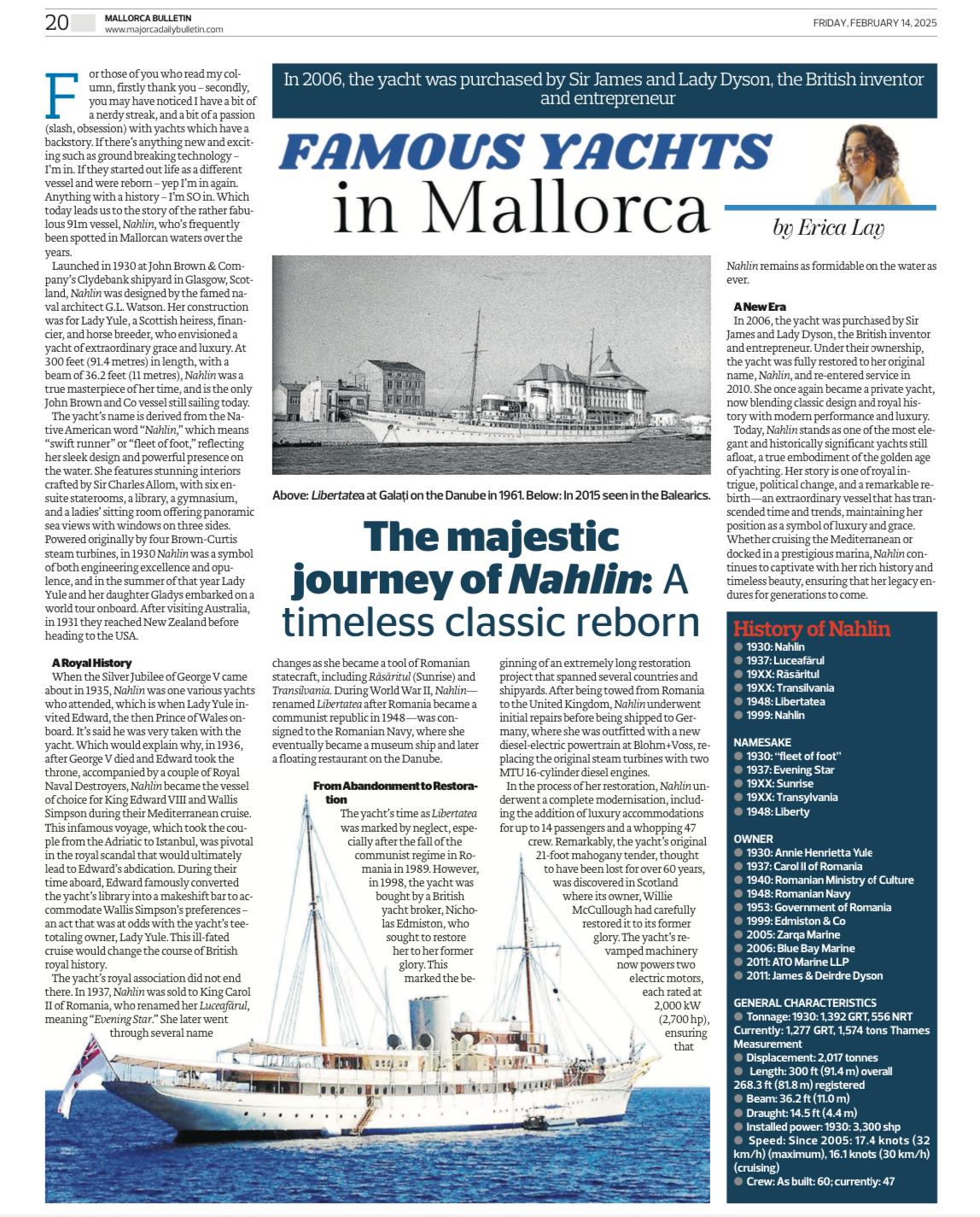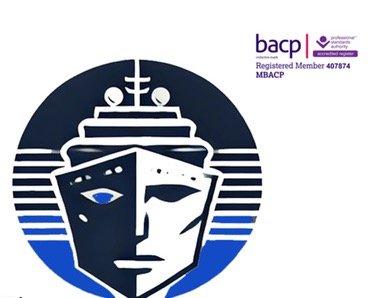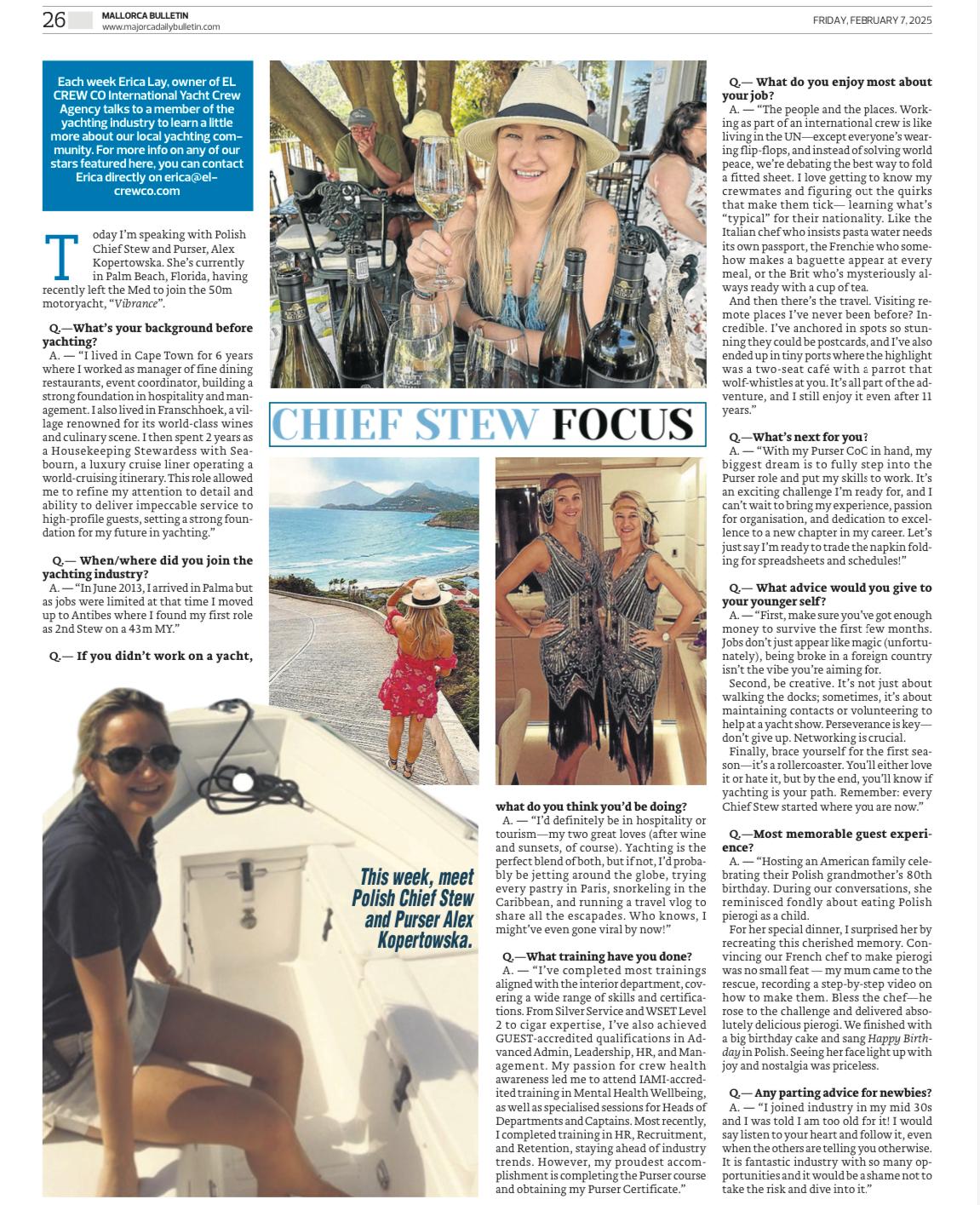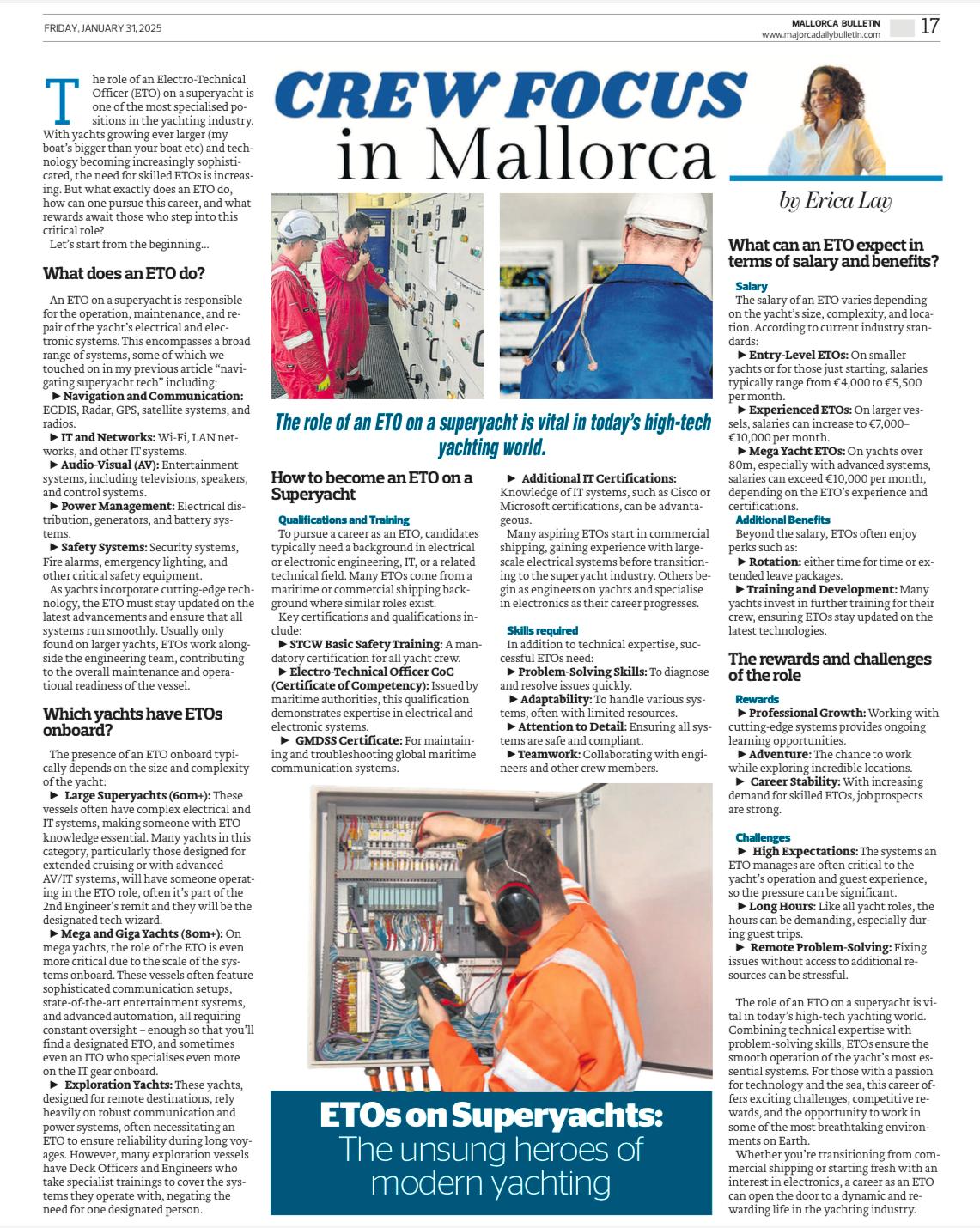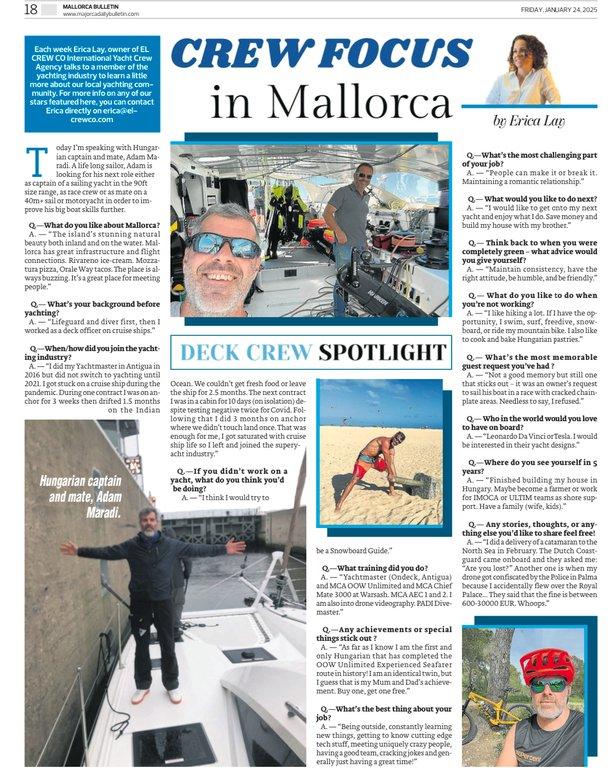Hub – Getting Hired: Crafting an Impressive CV for Green Crew
Getting Hired: Crafting an Impressive CV for Green Crew. Catch the attention of yacht captains and crew agencies. With Courtesy of Erica Lay & The Mallorca Bulletin. #24/0140.
March 1, 2025 · 3 min read
Erica Lay owner of EL CREW International Yacht Crew Agency http://www.elcrewco.com/
Crafting a stand out CV as a green crew member requires a strategic approach, attention to detail, and a focus on highlighting your relevant skills, attributes, and potential.
Securing your first position in the superyacht industry as a green crew member can be both thrilling and daunting. By daunting, I mean, terrifying. While you may lack actual experience in the maritime field, a well-crafted CV can effectively showcase your skills, attributes, and enthusiasm for the job. We’ve talked about how to create a CV for experienced crew so let’s focus on you greenies and give you a little specific help. So, whether you’re aspiring to work as a deckhand, stewardess, chef, or junior engineer, here are essential tips for creating an impressive resume that will catch the attention of yacht captains and crew agencies:
Begin with a Strong Introduction:
Start your CV with a compelling summary or objective statementthat highlights your passion for the maritime industry and your eagerness to embark on a career in yachting. Use this section to briefly introduce yourself, emphasize your relevant skills and qualities, and express your enthusiasm for learning and growth.
Highlight Transferable Skills and Attributes:
As a green crew member, focus on highlighting transferable skillsand attributes that are relevant to the superyacht industry. Emphasise qualities such as adaptability, teamwork, communication, attention to detail, and a strong work ethic. Highlight any previous experiences, whether in hospitality, customer service, or other fields, that demonstrate these skills.
Showcase Relevant Certifications and Training:
List certifications such as STCW (Standards of Training, Certification, and Watchkeeping), ENG1 medical certificate, Powerboat Level 2, or any other relevant courses or qualifications you’ve completed such as PYA Guest courses, Personal Watercraft, any sailing or boating certificates etc.
Detail Your Education Background (if relevant):
Provide information about your educational background, including any degrees, diplomas, or coursework that are relevant to the superyacht industry. If you’ve pursued studies in marine engineering, hospitality management, or a related field, highlight these credentials to showcase your foundational knowledge and expertise.
Include Volunteer Work or Extracurricular Activities:
If you have limited professional experience, consider including volunteer work, internships, or extracurricular activities that demonstrate your skills and character. Participation in community service, sports teams, leadership roles, or other activities can provide valuable insights into your personality, interests, and potential as a crew member. I’ve often seen green crew hired purely based on this section of their CV.
Tailor Your CV to the Position:
Customise your CV for each job application by tailoring it to the specific requirements and preferences of the position you’re applying for. Carefully review the job description and identify key skills, qualifications, and attributes sought by the captain or agent. Highlight relevant experiences and accomplishments that align with these criteria to make your application stand out.
Emphasize Language Skills and Cultural Awareness:
Fluency in multiple languages and cultural awareness are highly valued in the superyacht industry, where crew members often interact with guests and colleagues from diverse backgrounds. If you’re proficient in languages other than English, be sure to highlight these skills prominently on your CV. Additionally, showcase any cross-cultural experiences or international travel that demonstrate your adaptability and global perspective.
Format Your CV Professionally:
Present your CV in a clear, professional format that is easy to read and visually appealing. Use a clean layout with consistent formatting, bullet points for listing achievements and responsibilities, and a legible font style and size. Avoid cluttered designs or excessive use of graphics, and keep your CV concise and focused on relevant information.
Proofread Carefully and Seek Feedback:
Before submitting your CV, proofread it carefully to ensure accuracy, clarity, and coherence. Look for spelling or grammatical errors, and double-check all dates, names, and contact information. Consider asking a trusted friend, family member, or mentor to review it and provide feedback on its content, structure, and overall effectiveness.
Demonstrate Enthusiasm and Commitment:
Above all, convey your genuine enthusiasm for the superyacht industry and your eagerness to learn, grow, and contribute as a green crew member. Use your resume as an opportunity toshowcase your passion, dedication, and potential to prospective employers, and convey a positive and proactive attitude that will resonate with yacht captains and crew agencies.
And if you haven’t read my CV photo article – where have you been? Photo is super important. So go find it if you haven’t seen it yet…
Crafting a stand out CV as a green crew member requires a strategic approach, attention to detail, and a focus on highlighting your relevant skills, attributes, and potential. By following these tips and tailoring your CV to showcase your strengths and aspirations, you can increase your chances of securing your first position in the exciting world of superyachts!




